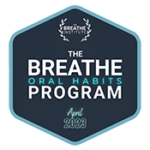Losing milk teeth, commonly known as baby teeth, is a natural part of childhood. Around the age of 6, your child should lose their first tooth. This process is exciting for the child and a little sad for the parents, because they realize that this is the stepping stone to growing up and entering the next stage of life.
So, the question arises as to what to do with these baby teeth? Some parents just throw them away, some may bury them for good luck, and some may keep them for sentimental or scientific reasons. If you decide to keep them, it is very important to remember that you should clean and dry the tooth thoroughly, prior to storage, as any moisture can lead to mold.
If you keep one or all of your child’s milk teeth, below are some suggestions on what to do with them.
Keepsake Box
There are some lovely keepsake boxes on the market today, that are especially designed to have a holding spot for each of your child’s baby teeth.
Baby Book
Baby books have been a long time tradition in many families. They will usually contain the first lock of hair, pictures, and dates of special occasions. Also, the first tooth lost which will be cleaned and stored in an envelope with the date.
Jewelry
There are craftsman that will mold the shape of your child’s tooth, and artistically design jewelry, in order to incorporate the tooth mold. You may also find artists that will create a beautiful piece of jewelry using the original teeth.
Sell Them
If you are a bit of an entrepreneur, you can legally sell your baby’s teeth, once they fall out. The above mentioned craftsmen are always looking for milk teeth for their creations. The going rate is about $5 per tooth.
School Science Project
The science fairs are in full force during grade school years. If you keep your child’s baby teeth for a few years, they can use them for their science project. One project could involve testing the effects of various beverages on real teeth, such as coffee and soda. A project like this may warrant “bonus” points, for promoting good reasons to brush your teeth after consuming certain foods and drinks.
Future Medical Cures
Baby teeth contain stem cells that have the potential to treat diseases and grow replacement bones or tissue for the body, if needed. When the teeth are properly stored, they have the potential to treat diseases in the future.
There are many storage facilities around the United States that are especially designed to store this type of DNA; however, the initial price averages about $1,200, with annual storage fees above $100. Although a costly alternative, this option appeals to many people, because even though there may not be a current treatment or cure for a particular disease – that doesn’t mean that one won’t be found in the near future.
Brought to you by: thekiddsplace.com










